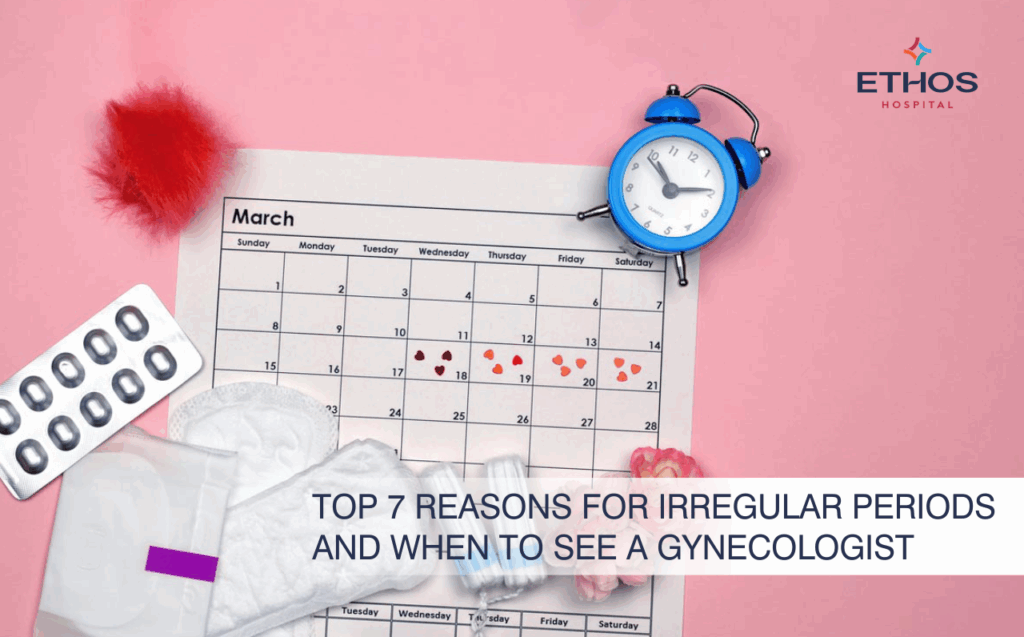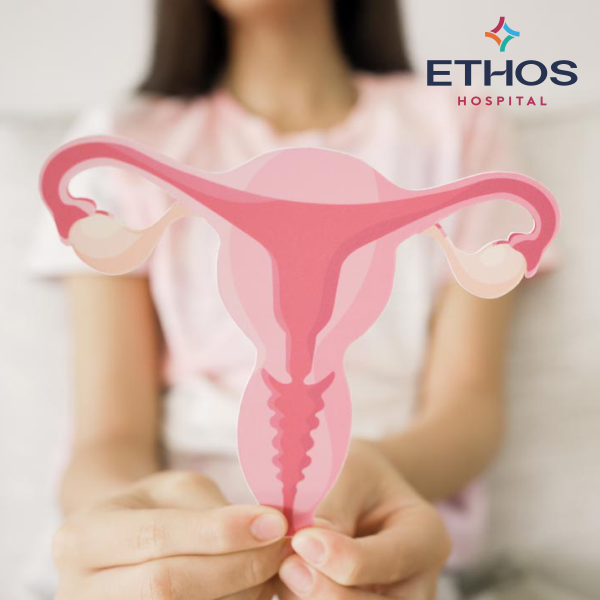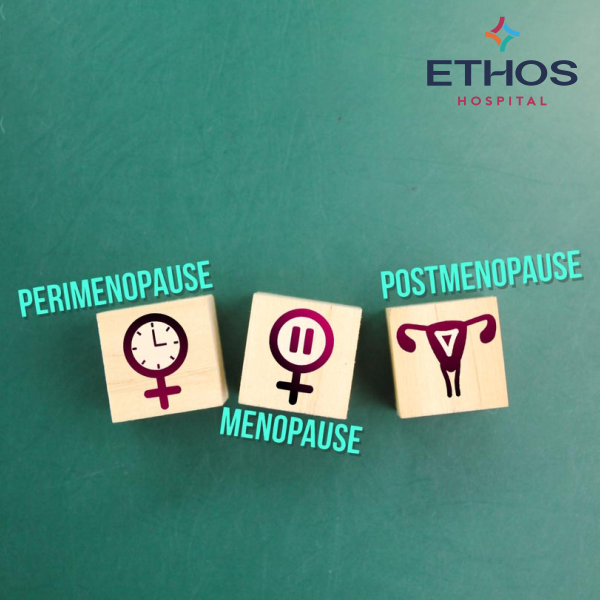Your menstrual cycle is a vital sign of your reproductive and hormonal health. While minor fluctuations in cycle length or flow are common, persistently irregular periods may signal an underlying issue. Understanding the root causes — and knowing when to consult a gynaecologist — is key to early diagnosis and effective management.

Here are the top 7 reasons for irregular periods:
1. Polycystic Ovary Syndrome (PCOS)
PCOS is a leading cause of irregular periods in women of reproductive age. This hormonal disorder disrupts ovulation due to excess androgen (male hormone) levels and insulin resistance. Symptoms may include missed or prolonged periods, acne, weight gain, and excess facial or body hair.
When to see a doctor: If you consistently miss periods or notice physical changes like increased facial hair or sudden weight gain.

2. Thyroid Disorders
An overactive (hyperthyroidism) or underactive (hypothyroidism) thyroid can affect the balance of reproductive hormones, leading to irregular cycles. Additional signs may include fatigue, weight changes, hair thinning, or temperature sensitivity.
When to see a doctor: If your irregular periods are paired with unexplained fatigue, mood swings, or significant weight fluctuation.

3. Stress and Emotional Strain
Chronic stress disrupts the hypothalamus — the brain region responsible for regulating hormones — which may delay or stop ovulation. Emotional trauma, anxiety, and lack of sleep can all contribute to cycle irregularity.
When to see a doctor: If periods remain irregular despite stress management or lifestyle adjustments.

4. Significant Weight Gain or Loss

5. Over-Exercising or Low Body Fat
Intensive physical training, especially among athletes, can lower body fat and suppress reproductive hormones. This may lead to light, infrequent, or absent periods — a condition known as hypothalamic amenorrhea.
When to see a doctor: If you’ve missed several periods and follow a strenuous fitness routine or have very low body fat.

6. Birth Control and Hormonal Medications
Hormonal contraceptives — including pills, patches, injections, and IUDs — can alter your menstrual cycle, especially when newly started or discontinued. Emergency contraception can also temporarily disrupt your next period.
When to see a doctor: If your cycle remains irregular several months after starting or stopping contraception.

7. Perimenopause or Other Underlying Conditions
Perimenopause, the transition to menopause, can cause cycle irregularities due to hormonal fluctuations. Additionally, conditions like uterine fibroids, endometriosis, or chronic illnesses (e.g., diabetes) can affect menstruation.
When to see a doctor: If you’re under 45 with sudden cycle changes, very heavy bleeding, or pelvic pain.

When to Seek Medical Attention
Irregular periods may require medical evaluation if you experience:
- Cycles shorter than 24 or longer than 38 days
- Bleeding lasting more than 7 days
- Missing periods for two or more months
- Bleeding between cycles or very heavy flow
- Sudden change in your regular cycle

Final Thoughts
While occasional irregularity isn’t usually concerning, ongoing changes deserve attention. Tracking your cycle can help your gynaecologist assess patterns and provide timely care. If in doubt, don’t delay — your menstrual health is an essential part of your overall well-being.




